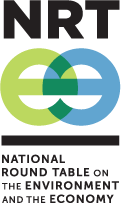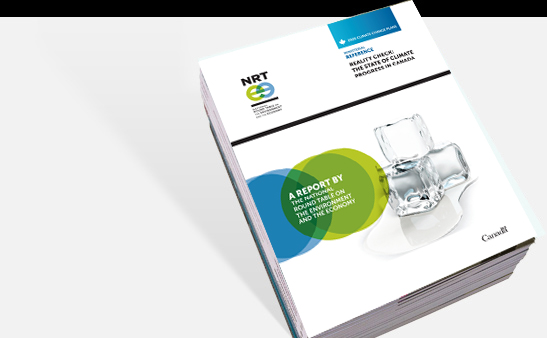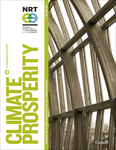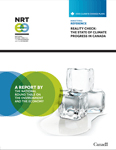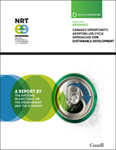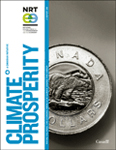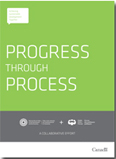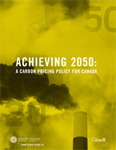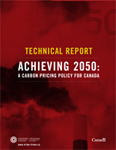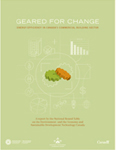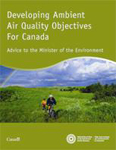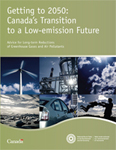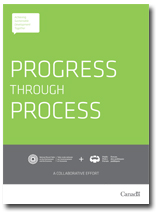Progress Through Process: Achieving Sustainable Development Together – Advise
We concluded that traditional governance approaches are no longer sufficient to achieve sustainable development goals. We offered eight elements that, together, comprise a successful collaborative governance framework for sustainable development.

More than 20 years ago, Canadians embraced the emerging concept of sustainable development in response to the landmark Brundtland Report. Meeting the needs of present generations without compromising those to come is at the heart of bringing environmental and economic interests together to create truly sustainable development solutions. But this has been easier said than done. Adversarial positions and entrenched interests have replaced dialogue and debate aimed at forging common solutions in recognition of a common future. Governments are often caught in the middle, forced to arbitrate between competing interests and positions in an attempt to navigate a way forward when they need to innovate with more open ways of bringing people together.
Today, tough, long-term issues such as climate change, water management, clean energy and more require new collaborative engagement processes if we are to truly make progress. That’s why two of Canada’s leading national public policy organizations – the National Round Table on the Environment and the Economy and the Public Policy Forum – collaborated to examine how we could reinvigorate our governance processes to make real progress on sustainable development.
Over the course of two round table discussions and one-on-one interviews with some 20 of Canada’s leading experts and practitioners in the field, we have together produced this new report entitled Progress Through Process: Achieving Sustainable Development Together. It will take you through our consideration of the issues and the dialogue we engaged in. It sets out our view of “Elements of Successful Collaborative Governance for Sustainable Development” for others to also put into practice. And it presents four live case studies as examples of collaborative governance processes being tried ‘on the ground’ with lessons to draw upon.
Making Collaboration Work: The Elements of Successful Collaborative Governance for Sustainable Development
Our discussions identified the elements of successful collaboration. Here, we draw on the preceding discussion to set out a framework for successful collaborative governance for sustainable development. These eight elements described below combine to build legitimacy from the outset and ensure the success of the collaboration.
(1) Focus on clear outcomes
Collaborative processes must be focused on clear, measurable outcomes. Collaboration for collaboration’s sake leads nowhere. Citizens will commit to a process that is expected to yield clear, real results.
(2) Find the right convenor
Collaborative processes need a convenor that is credible, neutral, and trustworthy. The convenor must be able to bring the right players to the table and establish a process that will enable progress. Governments are often best placed to convene, but not always; sometimes others are better positioned to convene collaborative processes.
(3) Bring the right people together
Collaborative processes must have the right players at the table. The process does not have to include every possible relevant stakeholder, but the process will not generate solutions that are successful in the long term if it excludes key interests.
(4) Ensure real commitment
Every participant must commit fully to the collaborative process. This means a commitment from all participants to see the process through, to act on the results, and to find solutions together through the collaborative process.
(5) Create clear rules and scope
Collaboration depends on clearly defined and agreed upon goals, rules, and scope. Success requires clarity on the goals; it requires clarity on timelines, so that discussions are not open-ended; it requires clarity on roles and responsibilities, so that participants understand what is expected of them; and it requires clarity on the rules of the process, so that participants can police each others’ actions and avoid conflict.
(6) Foster shared ownership and accountability
Collaborative processes must develop a shared ownership and accountability for the process and the resulting policy solutions. Collaboration means that the participants are taking responsibility as a group for solving their problems together.
(7) Build legitimacy
Collaborative initiatives must be—and must be seen as being—legitimate processes. Success depends on developing two forms of legitimacy. Internal legitimacy derives from having the right participants and good processes with clear, transparent, and fair rules. External legitimacy is gained through some level of recognition and backing from established democratic institutions.
(8) Establish ongoing dialogue
Collaborative processes should establish ongoing dialogue and engagement. Ongoing processes create trust and build on past success. They enable evaluation and continuous learning from the successes and shortcomings of the past.
